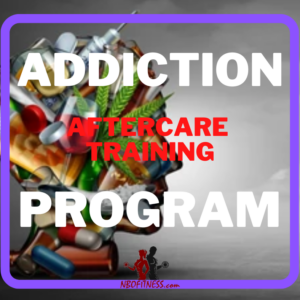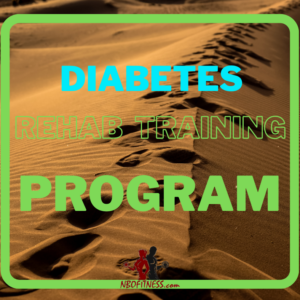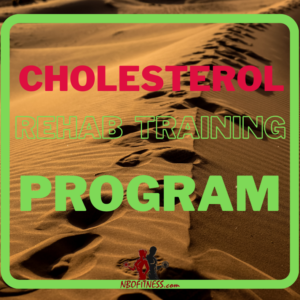
Stroke is a medical emergency that occurs when blood flow to the brain is disrupted, either by a blockage or bleeding. It is a leading cause of disability and death worldwide, yet many people are unaware of its risk factors and warning signs. Obesity is one of the modifiable risk factors for stroke, highlighting the importance of lifestyle interventions in prevention and management. Obesity is a significant risk factor for stroke, as it is associated with several other risk factors such as hypertension, diabetes, and high cholesterol. Excess body fat can lead to the accumulation of plaque in the arteries, narrowing the blood vessels and increasing the risk of blood clots. Additionally, obesity is associated with chronic inflammation and metabolic dysfunction, which can further contribute to the development of stroke. Therefore, adopting a healthy lifestyle that includes regular exercise, a balanced diet, and weight management is essential in reducing the risk of stroke.
Reviewed by Evans Mwaniki, PT
Introduction
At Nairobi Fitness Consulting, we are dedicated to empowering individuals to take control of their health and reduce their risk of stroke through personalized exercise programs, nutritional counseling, and psychological support.
Understanding Stroke
A stroke occurs when the blood supply to part of the brain is interrupted or reduced, depriving brain tissue of oxygen and nutrients. Without prompt treatment, brain cells begin to die within minutes, leading to potentially irreversible damage. There are two main types of stroke:
Ischemic stroke: This type of stroke occurs when a blood clot blocks an artery supplying blood to the brain. It accounts for approximately 87% of all strokes and is often associated with risk factors such as high blood pressure, high cholesterol, and obesity.
Hemorrhagic stroke: This type of stroke occurs when a weakened blood vessel ruptures and bleeds into the surrounding brain tissue. It accounts for approximately 13% of all strokes and is often associated with risk factors such as hypertension and obesity.
Signs and Symptoms
Recognizing the signs and symptoms of stroke is crucial for prompt medical intervention and improved outcomes. Common signs and symptoms of stroke include:
- Sudden numbness or weakness in the face, arm, or leg, especially on one side of the body.
- Sudden confusion, trouble speaking, or difficulty understanding speech.
- Sudden trouble seeing in one or both eyes.
- Sudden trouble walking, dizziness, loss of balance, or lack of coordination.
- Sudden severe headache with no known cause.
- If you or someone you know experiences any of these symptoms, it is essential to seek immediate medical attention, as early intervention can significantly improve the chances of recovery.
Treatment Options
The treatment of stroke depends on the type and severity of the stroke, as well as the individual’s overall health and medical history. Common treatment options may include:
Medications: Depending on the type of stroke, medications such as clot-busting drugs (thrombolytics) or antiplatelet agents may be administered to restore blood flow to the brain and prevent further clot formation.
Surgery: In some cases, surgery may be necessary to remove blood clots, repair damaged blood vessels, or relieve pressure on the brain.
Rehabilitation: After the acute phase of stroke treatment, rehabilitation plays a crucial role in helping survivors regain lost function and improve their quality of life. This include nutrition, physical therapy, occupational therapy, speech therapy, and psychological counseling.
The Role of Obesity in Stroke
Obesity is a significant risk factor for stroke, as it is associated with several other risk factors such as hypertension, diabetes, and high cholesterol. Excess body fat can lead to the accumulation of plaque in the arteries, narrowing the blood vessels and increasing the risk of blood clots. Additionally, obesity is associated with chronic inflammation and metabolic dysfunction, which can further contribute to the development of stroke. Therefore, adopting a healthy lifestyle that includes regular exercise, a balanced diet, and weight management is essential in reducing the risk of stroke.
How Nairobi Fitness Consulting Can Help
At Nairobi Fitness Consulting, we offer a holistic approach to stroke prevention and management that addresses the underlying factors contributing to the condition. Our team of physiotherapists, nutritionists, and psychologists work together to provide personalized care and support to individuals at risk of stroke. Here’s how we can help:
- Personalized exercise programs: Our physiotherapists can design medically tailored exercise programs to help individuals improve cardiovascular health, lower blood pressure, and manage weight. Regular monitored physical activity is essential in reducing the risk of stroke and improving overall health and wellbeing.
- Nutritional counseling: Our nutritionists can provide guidance on adopting a balanced diet rich in fruits, vegetables, whole grains, and lean proteins while limiting processed foods and unhealthy fats. They can also offer support and motivation to help individuals make sustainable lifestyle changes.
- Psychological support: Coping with the aftermath of stroke can be challenging, both physically and emotionally. Our psychologists offer counseling and support to help individuals and their families adjust to life after stroke, manage stress, and improve mental wellbeing.
Conclusion
Stroke is a serious and potentially life-threatening condition that requires prompt medical attention and comprehensive care. By addressing modifiable risk factors such as obesity through lifestyle interventions, individuals can reduce their risk of stroke and improve their overall health and wellbeing. At Nairobi Fitness Consulting, we are committed to empowering individuals to take control of their health and reduce their risk of stroke through personalized exercise programs, nutritional counseling, and psychological support. If you or someone you know is at risk of stroke or has experienced a stroke, don’t hesitate to reach out to us today for personalized care and support.
Our concierge (at home) team of medical personnel, physiotherapists, nutritionists and psychologists, allow you to participate in personalized therapeutic exercises, nutrition and psychological counseling sessions from the comfort of your own home at the time of your choosing, making it convenient for you and your family. Feel free to email us at [email protected] or call us via +254-725-251930 to book an appointment with us at Nairobi Fitness Consulting for your curated and guided prescription and start living your best life.










